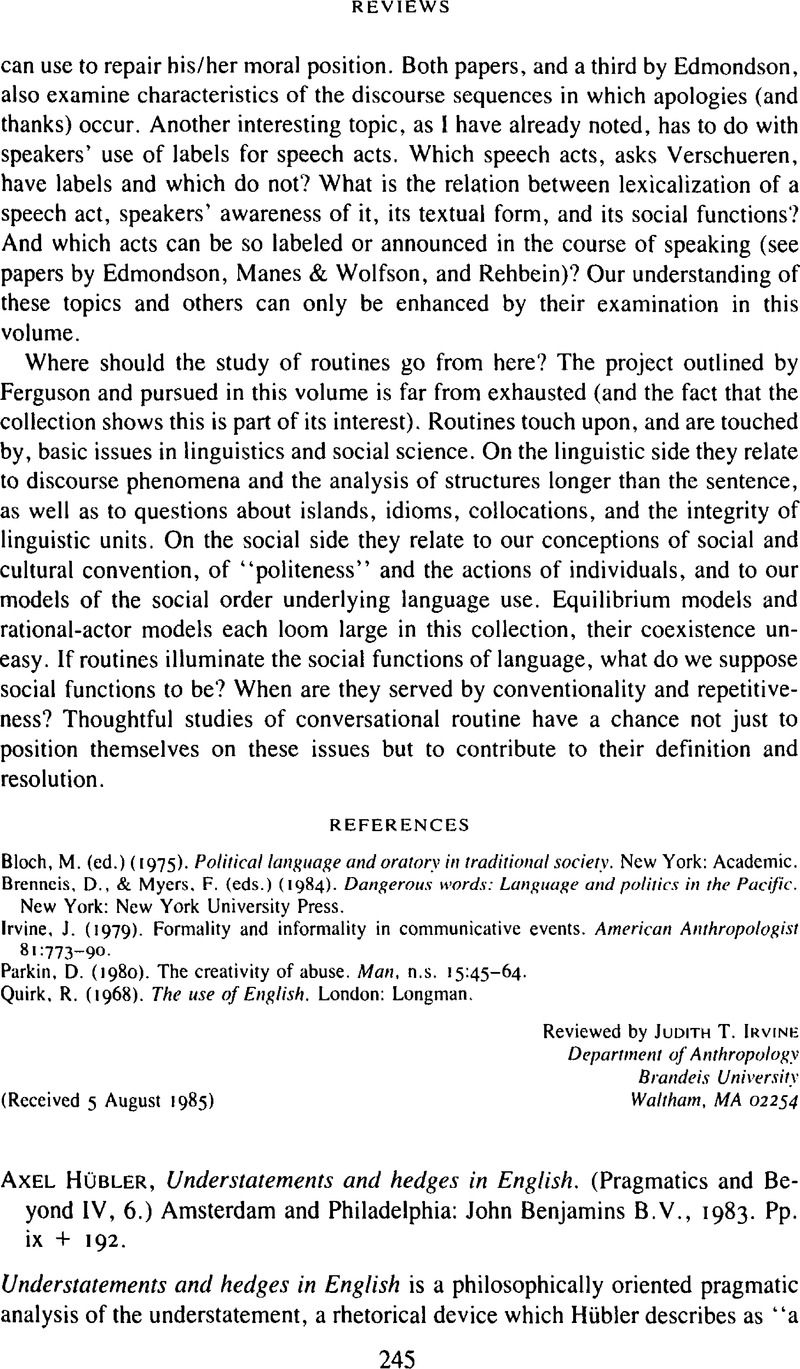No CrossRef data available.
Article contents
Axel Hübler, Understatements and hedges in English. (Pragmatics and Beyond IV, 6.) Amsterdam and Philadelphia: John Benjamins B.V., 1983. Pp. ix + 192.
Published online by Cambridge University Press: 18 December 2008
Abstract
An abstract is not available for this content so a preview has been provided. Please use the Get access link above for information on how to access this content.

- Type
- Book Review
- Information
- Copyright
- Copyright © Cambridge University Press 1986
References
REFERENCES
Brown, P., & Levinson, S. (1978). Universals in language usage: Politeness phenomena. In Goody, E. N. (ed.), Questions and politeness. Cambridge University Press. 56–289.Google Scholar
Grice, P. (1975). Logic and conversation. In Cole, P. & Morgan, J. L. (eds.). Syntax and semantics: 3 Speech acts. New York: Academic. 41–58.Google Scholar
Lakoff, G. (1972). Heges: A study in meaning criteria and the logic of fuzzy concepts. Papers from the Eighth Regional Meeting of the Chicago Linguistic Society. Chicago: Chicago University Press. 183–228.Google Scholar
Lysvåg, P. (1975). Verbs of hedging. In Kimball, J. P. (ed.), Syntax and semantics 4. New York: Academic. 125–54.Google Scholar
O'Barr, W. M., & Atkins, B. K. (1980). “Women's language” or “powerless language”? In McConnell-Ginet, S., Borker, R., & Furman, N. (eds.), Women and language in literature and society. New York: Praeger. 93–110.Google Scholar


